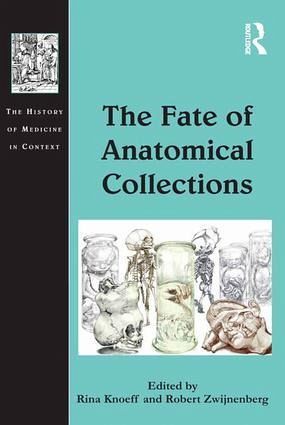
The Fate of Anatomical Collections
Versandkostenfrei!
Versandfertig in 1-2 Wochen
168,99 €
inkl. MwSt.
Weitere Ausgaben:

PAYBACK Punkte
84 °P sammeln!
This volume explores the changing status of anatomical collections from the early modern period to date. It is argued that anatomical and pathological collections are medically relevant for future research, and are important in the history of medicine, the cultural history of the body, and the history of the institutions to which they belong. In considering the fate of anatomical collections - and the importance of keeper's decisions with respect to collections - this volume will make an important methodological contribution to the study of collections and to discussions on how to preserve uni...
This volume explores the changing status of anatomical collections from the early modern period to date. It is argued that anatomical and pathological collections are medically relevant for future research, and are important in the history of medicine, the cultural history of the body, and the history of the institutions to which they belong. In considering the fate of anatomical collections - and the importance of keeper's decisions with respect to collections - this volume will make an important methodological contribution to the study of collections and to discussions on how to preserve universities' academic heritage.














